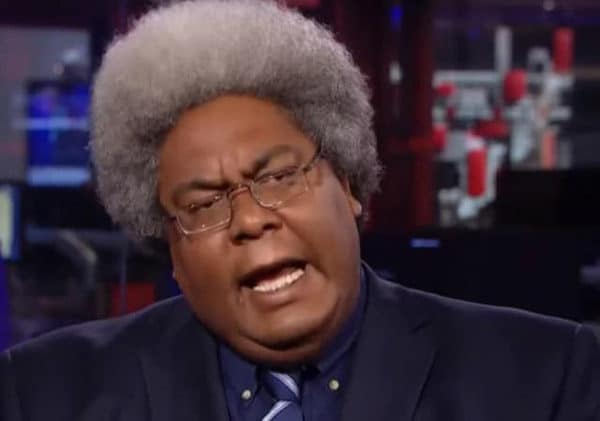Blacks Are Increasingly Above the Law
Robert Hampton, American Renaissance, August 30, 2019
In 2013, a black man named Terry Wilson shot and killed a man. Mr. Wilson claimed self-defense, but a jury convicted him of first-degree murder. However, Mr. Wilson’s defense convinced Macomb County Michigan Circuit Court Judge Jennifer Faune, a white woman, to overturn the conviction. Other jurors complained that during deliberations, juror Harvey Labadie had called Mr. Wilson “just another ni**er off the streets.”
“I have never said racist comments in my life. I am a Democrat,” Mr. Labadie later told a local news station. He was shocked to hear that Mr. Wilson’s conviction was overturned. “He must have had a good lawyer,” he said.
Even if Mr. Labadie did use a slur, it didn’t change the facts in the case or the views of the 11 other jurors. Yet a conviction was overturned because one juror — allegedly — used a forbidden word.
A black death-row inmate in a 1999 murder case in Oklahoma appealed to the Supreme Court to review his conviction because a juror — according to an allegation made 18 years later — said during deliberations, “Just take the ni**er out and shoot him behind the jail.” Surprisingly, this year, the Supreme Court denied his request.
Throughout America, lawyers and activists are trying to subvert justice in the name of anti-racism. Convictions can be overturned if juries are not diverse. Black jurors refuse to convict other blacks. Non-white attackers can claim self-defense if they say they heard their victims use a slur. Judges are swayed by identity politics and fashionable attitudes.
The Supreme Court recently ruled that insufficiently diverse juries are unfair to non-whites. In an opinion written by Justice Brett Kavanaugh, the Court overturned a black Mississippian’s murder conviction because the prosecutor struck potential jurors who were black.
Justice Clarence Thomas dissented, writing that the majority opinion’s only “redeeming quality is that it allows the state to convict Curtis Flowers again.” “Otherwise the opinion distorts our legal standards, ignores the record, and reflects utter disrespect for the careful analysis of the Mississippi courts,” he wrote. “Any competent prosecutor would have exercised the same [jury] strikes as the State did in this trial.” Justice Thomas said the Supreme Court succumbed to media pressure just by taking the case. “[A]lthough the Court’s opinion might boost its self-esteem, it also needlessly prolongs the suffering of four victims’ families,” he wrote.
It was the Court’s sole black justice who ignored nonsense about “racial bias” and focused on the case itself.
Georgetown Law professor Paul Butler, who is black, argues that blacks should use jury nullification to help their co-racialists. “Confronting the racial crisis in criminal justice, jury nullification gives jurors a special power to send the message that black lives matter,” he argued in a 2016 Washington Post op-ed. “If they think that the police are treating African Americans unfairly — by engaging in racial profiling or using excessive force — they don’t have to convict, even if think the defendant is guilty.”
Ironically, Mr. Butler told Vox he first became aware of jury nullification when he worked as a prosecutor: “I was warned by the experienced prosecutors that there would be cases involving nonviolent drug offenses in which no matter what my evidence was or no matter how good my trial skills were, the jury would acquit. And the reason they would is because they didn’t want to send another young black man to jail or prison.” Mr. Butler eventually decided these juries were doing the right thing.
Above the Law executive editor Elie Mystal goes further. In 2016, he urged black jurors to acquit all defendants tried for any crime against whites or “white institutions” — including murder.
Mr. Mystal wrote that refusing to punish crimes against whites “will choke the system until it is willing to change,” and give justice to blacks. To the extent that blacks agree with Mr. Mystal, prosecutors are justified in keeping them off juries.

Elie Mystal
The system is already choking. In 2017, the state of Florida dropped charges against a black man who admitted to killing a white man. Joni Donley said he beat his white math tutor to death after the tutor insulted him with a racial slur. The state said it didn’t have enough evidence to bring Mr. Donley to trial because a key witness had left the country.
In 2015, a black Kentucky judge gave a black man convicted of home invasion no jail time after he heard that the young daughter of the victim’s family now fears black men. Jefferson County Circuit Court Judge Olu Stevens admonished the victims instead of the criminal: “I am offended. . . I am deeply offended that they would be victimized by an individual and express some kind of fear of all black men.”
Judge Stevens was later suspended for 90 days without pay because of misconduct in this case and others. He had dismissed several juries because they were too white, and refused to give jail time to a black career criminal who frequently violated his probation.
This is the justice system we can expect as whites become a minority. Non-white criminals will go free; white victims won’t get justice. Race will triumph over the rule of law.















